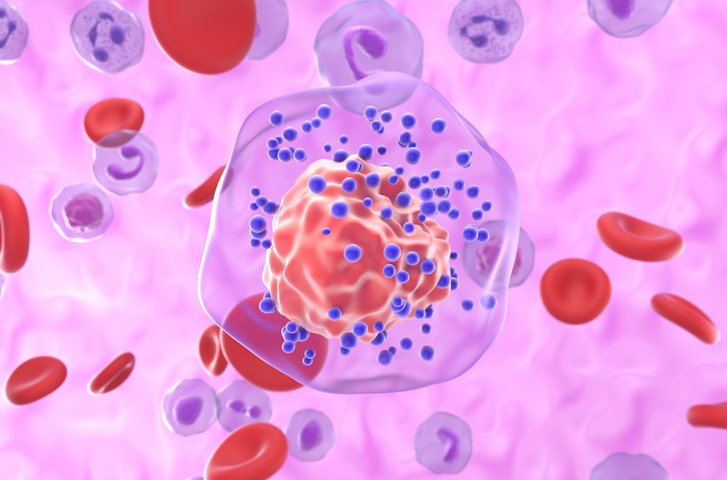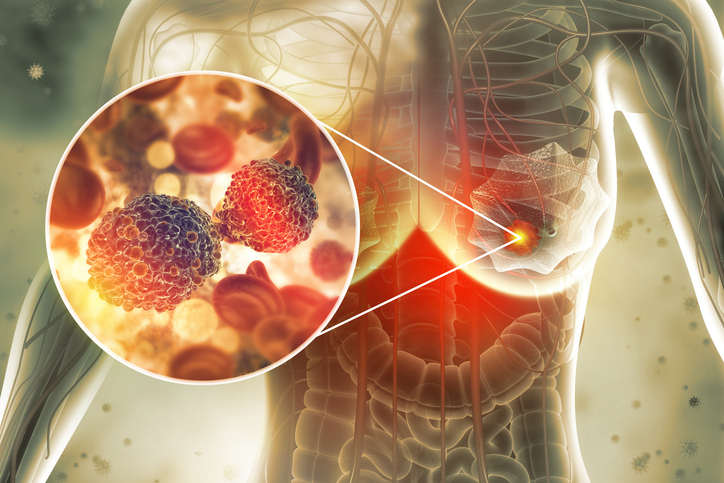
For patients with breast cancer who have undergone complete excision, a regimen of accelerated epirubicin followed by adjuvant chemotherapy was associated with worse quality of life (QOL) during the course of treatment compared with a standard epirubicin regimen, according to results from a randomized, controlled trial. These findings were published in The Lancet Oncology.
The TACT2 trial was a multicenter, phase 3, open-label, parallel-group trial conducted across 129 centers in the United Kingdom. The study population comprised patients aged ≥18 years with histologically confirmed node-positive or high-risk, node-negative, invasive, primary breast cancer who were due to receive adjuvant chemotherapy following complete excision. Randomization was done in a 1:1:1:1 ratio for one of the following regimens:
- standard epirubicin (100 mg/m2 every 3 weeks) followed by cyclophosphamide, methotrexate, and fluorouracil (CMF)
- accelerated epirubicin (100 mg/m2 every 2 weeks with pegfilgrastim 6 mg on day 2 of each cycle) followed by CMF
- standard epirubicin followed capecitabine
- accelerated epirubicin followed by capecitabine
Epirubicin regimens were all administered for 4 cycles. The CMF regimen consisted of four 4-week cycles of intravenous (IV) cyclophosphamide (600 mg/m2) on days 1 and 8 or 100 mg/m2 orally on days 1-14; IV methotrexate (40 mg/m2) on days 1 and 8; and IV fluorouracil (600 mg/m2) on days 1 and 8. Capecitabine was administered in four 3-week cycles at 1250 mg/m2 twice daily (2500 mg/m2 total) on days 1-14.
All patients from a subset of 44 centers were invited to complete the following QOL questionnaires: Hospital Anxiety and Depression Scale (HADS) and the European Organisation for Research and Treatment of Cancer (EORTC) QOL Questionnaire 30-item core module and breast module. Questionnaires were completed at baseline, end of standard or accelerated epirubicin, end of CMF/capecitabine, and at 12 and 24 months after randomization.
In total, 4391 patients were included in the QOL analysis. Median follow-up was 85.6 months (interquartile range, 80.6-95.9). Analysis was performed when all participants passed the 24-month time point. Around 92% of participants completed the baseline and postrandomization questionnaires, respectively.
The results showed that the CMF group demonstrated worse end-of-treatment HADS depression scores (P=.0048) and HADS total change scores (P=.0093) compared with the capecitabine group. HADS outcomes were similar between the accelerated and standard epirubicin groups, with overall improvement in anxiety scores over 24 months. Overall HADS depression scores worsened during treatment but improved toward baseline levels at 12 and 24 months.
EORTC questionnaires showed significantly worse outcomes for the accelerated epirubicin group in most subscales during the course of treatment. Compared with standard epirubicin, the accelerated treatment arm had worse physical function (P=.0065), role function (P<.0001), fatigue (P=.0002), and systemic side effects (P=.0001), but not sexual function (P=.36); however, this effect did not persist following treatment. Patients who received CMF had worse physical function (P=.0048), sexual function (P=.0053), fatigue (P<.0001), and systemic side effects (P<.0001) at end of treatment, with a persistent effect through 24 months.
“These findings will help patients and clinicians make an informed choice about accelerated chemotherapy,” the authors concluded. “CMF had worse QOL effects than did capecitabine, which were persistent for 24 months. The favorable capecitabine QOL compared with CMF supports its use as an adjuvant option after neoadjuvant chemotherapy in patients with triple-negative breast cancer.”






 © 2025 Mashup Media, LLC, a Formedics Property. All Rights Reserved.
© 2025 Mashup Media, LLC, a Formedics Property. All Rights Reserved.